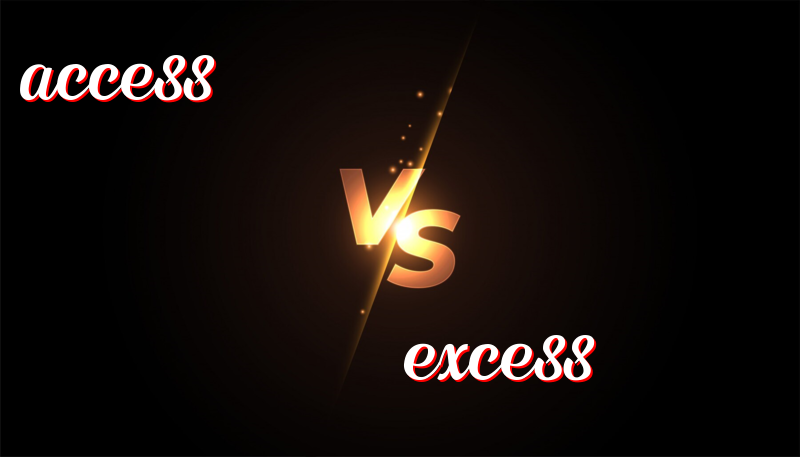Keys and Balloons: Access vs. Excess Explained
January 15, 2025
Understanding the Difference: Access vs. Excess
History of the Words
The word “access” comes from Latin accessus, which means “an approach, an entrance.” It is about being able to reach or enter something. The word “excess” comes from Latin excessus, meaning “departure,” but now we use it to mean “too much” of something.
How to Use Them
Access
- Use “access” when you talk about getting into a place, using a service, or having the ability to use something.
- For example, having access to the internet means you can connect online.
Example Sentences:
- I have access to the library’s books.
- You need a password to access the computer.
- He has access to the garden from his room.
- She wanted access to the concert, so she bought a ticket.
- The door allows access to the rooftop.
Excess
- Use “excess” when you talk about having more than you need or want.
- For example, having excess food means you have too much to eat.
Example Sentences:
- He ate an excess of ice cream and felt sick.
- The fridge is full of excess eggs.
- There is an excess of toys in the room.
- She spent the excess money on clothes.
- The rain caused excess water in the streets.
Trick to Remember the Difference
To remember the difference, think of “Access” as a key that lets you in, while “Excess” is like a balloon that’s too full.
Summary
In short, use “access” to talk about getting to something or using something. Use “excess” to talk about having too much of something. Remember, access is about entry, and excess is about extra.

Leave a Reply
You must be logged in to post a comment.